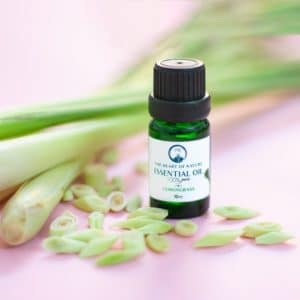Essential oils have been popular in Burbank for years. People use them to help reduce stress and anxiety, aid in digestion or just to make their homes smell good. Their purported health benefits are numerous; some swear essential oils can even help reverse hearing and balance disorders. Is there any truth to these claims?
The Long History of Essential Oils

Essential oils are liquid concentrates derived from a wide variety of plants—usually herbs and fruit. Hundreds of fragrances can be extracted; popular ones include peppermint, lavender, tea tree oil, cedarwood, lemon and eucalyptus. Oils are distilled from many different parts of the plant including the leaves, flowers, roots, bark, seeds, berries and needles.
People have been using essential oils as a type of folk medicine for hundreds of years—as far back as the 12th century. Their use is on the rise again with modern-day Burbank residents who are looking for alternative medicine and natural remedies. Many believe essential oils promote positive well-being and can help with a range of health ailments. The oils are usually diffused, burned or rubbed into the skin. Believers swear they help do everything except make the bed! Specifically, they are alleged to:
- Boost energy
- Reduce stress
- Aid digestion
- Lower anxiety
- Improve mood
- Protect against infection
- Relieve headaches, nausea and some skin conditions
Essential oils are not regulated by the FDA. This has led to some pretty far-out claims about their health benefits, but none has ever been proven. They won’t cause harm when used as directed, but there are dangers associated with improper use. Essential oils can cause skin irritation and other allergic reactions in some individuals. Ingesting them can cause a burning sensation and inflammation. Children and pregnant or nursing women should avoid using them.
Specific Hearing and Balance Claims
Proponents claim that cajeput oil, geranium oil, lavender oil and tea tree oil can help those with sensorineural hearing loss (nerve deafness) and helichrysum oil will ease symptoms associated with both conductive and sensorineural hearing loss. There is no scientific evidence to back this up.
Cypress oil, ginseng oil, helichrysum oil, juniper oil, lavender oil, lilies oil, olive oil, onion oil, petitgrain oil, rehmannia oil and spotted orchis oil are said to reverse tinnitus, a persistent ringing in the ears. The reality is, tinnitus has no cure.
Individuals suffering from vertigo are told that basil oil, bergamot oil, bitter orange oil (neroli), CBD oil, clary sage oil, cypress oil, geranium oil, ginger oil, lavender oil, lemon balm oil, peppermint oil, rose oil, rosemary oil, tangerine oil or thyme oil will all help eliminate dizziness. Again, there is no truth to this.
People with ear infections are urged to try lavender oil, olive oil, tea tree oil, oregano oil, basil oil, thyme oil, bishop’s weed oil, peppermint oil, mustard oil and a mixture of sesame and castor oil to help fight off infection. Time (and in some cases, antibiotics) is the only proven cure.
It’s understandable to look for natural ways to treat your health, but the reality is, only a qualified hearing specialist can provide a solution that will work. If you are experiencing a hearing or balance problem, make an appointment with an audiologist in Burbank.
